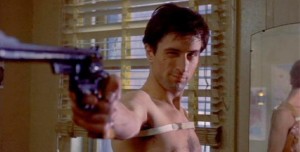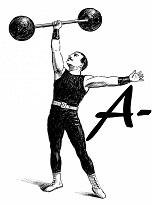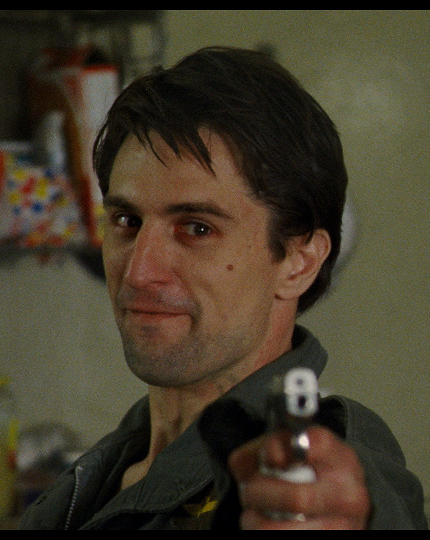The 1976 Martin Scorcese-directed film “Taxi Driver” lives up to its classic and iconic status as a culturally significant and time withstanding masterpiece of cinema.
The film is told from the perspective of a socially inept and slightly psychotic taxi cab driver, Travis Bickle (Robert De Niro) as he narrates his lackluster life, while about to cross the line of mental sanity, as he drives a cab throughout the decrepit and filthy boroughs that was 1970s New York.
Bickle narrates from his own personal diary as he observes the days of his menial life passing him by. He longs for love and something better in his life; all the while playing a firsthand witness to the mockery and disgust of the city that surrounds him. A chance encounter with a 12-year-old prostitute named Iris (Jodie Foster) and her smarmy pimp Matthew (Harvey Keitel) sets Bickle on a mission to do the right thing – anyway that he can.
Bickle meets and falls for Betsy (the adorable Cybill Shepherd) a prominent campaign worker employed by a senator that is seeking the presidency. When she breaks things off, Bickle crosses the line of sanity (a line that was quite blurred by this point anyway) and he decides to finally do something memorable in his life and sets forth a plan – to assassinate the senator.

Robert De Niro easily cements himself as one of the greatest actors in the history of cinema with this performance alone. The character of Travis Bickle, known for his legendary “you talking to me” scene that De Niro improvises, makes an otherwise mediocre plot worth watching again and again.
As Bickle narrates the film, a haunting and simply beautiful score by Bernard Herrmann takes you right to the mind of the character and the atmosphere of the unpleasant city of New York during its basement dwelling days of the 1970s. Subtleties in the directing by Scorsese will be enjoyable treats for the novice fan as well as the seasoned student of film.
– by Matt Christopher


